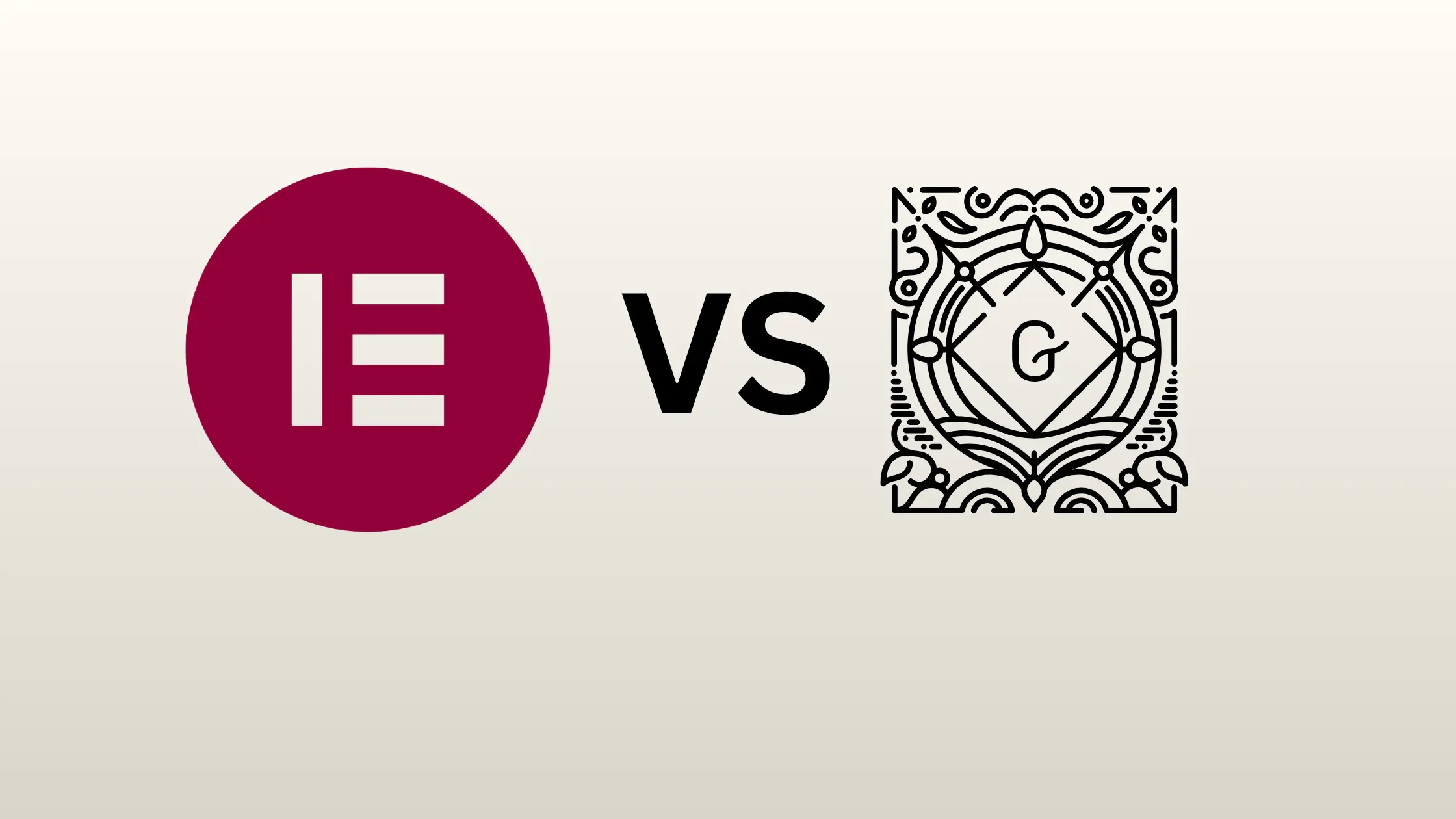
WordPress users face a critical decision that directly impacts their website’s success: choosing between Elementor and Gutenberg for content creation. This comprehensive comparison reveals which page builder delivers superior performance, functionality, and value for your business needs.
The digital landscape demands websites that convert visitors into customers. With over 43% of all websites powered by WordPress, selecting the right page builder has become increasingly crucial for business success. Both Elementor and Gutenberg offer unique advantages, yet each serves different user needs and technical requirements.
Modern website owners require tools that balance ease-of-use with powerful customization capabilities. Furthermore, search engines prioritize fast-loading, mobile-responsive sites with excellent user experience. Therefore, understanding the strengths and limitations of each platform directly impacts your website’s performance and profitability.
Elementor revolutionized WordPress page building by introducing drag-and-drop functionality that rivals premium design software. This third-party plugin transforms content creation through its intuitive visual interface and extensive widget library.
Advanced Design Capabilities: Elementor offers over 90 widgets and 300+ pre-designed templates, enabling users to create professional layouts without coding knowledge. Additionally, the platform provides pixel-perfect design control through its advanced styling options and custom CSS integration.
Professional Templates and Blocks: The Elementor Template Library contains thousands of professionally designed sections, pages, and complete website kits. These templates significantly reduce development time while maintaining high design standards.
Third-Party Integrations: Elementor seamlessly connects with popular marketing tools, including Mailchimp, WooCommerce, and various CRM platforms. This integration capability streamlines business workflows and enhances website functionality.
Performance Impact: Heavy reliance on JavaScript and CSS can slow page loading times, particularly on shared hosting environments. Studies show that Elementor-built pages average 15-20% slower load times compared to native WordPress blocks.
Vendor Lock-in: Switching from Elementor requires significant content migration efforts, as removing the plugin can break page layouts and formatting.
Gutenberg represents WordPress’s evolution toward modern content creation through its block-based approach. Integrated directly into WordPress core since version 5.0, Gutenberg eliminates the need for third-party page builders.
Native Performance: As WordPress’s default editor, Gutenberg generates cleaner code and faster loading speeds. Websites built with Gutenberg blocks typically achieve 25-30% better Core Web Vitals scores compared to page builder alternatives.
No Plugin Dependencies: Gutenberg’s integration into WordPress core ensures long-term stability and eliminates plugin compatibility concerns. This native approach reduces maintenance overhead and security vulnerabilities.
Growing Block Ecosystem: The WordPress community continuously develops new blocks and patterns, expanding Gutenberg’s functionality without performance penalties.
Learning Curve: Users transitioning from classic editors may find the block-based approach initially challenging. However, this learning investment pays dividends through improved content structure and SEO optimization.
Limited Advanced Styling: While Gutenberg offers basic design options, it lacks Elementor’s sophisticated styling controls and animation capabilities.
Winner: Elementor Elementor’s drag-and-drop interface provides immediate visual feedback, making it ideal for designers and non-technical users. Conversely, Gutenberg requires understanding block relationships and hierarchies.
Winner: Gutenberg Native WordPress integration gives Gutenberg significant performance advantages. Elementor’s additional JavaScript and CSS files can impact site speed, particularly on budget hosting plans.
Winner: Elementor Elementor offers superior design control with advanced typography, spacing, and animation options. Gutenberg’s design capabilities, while improving, remain more limited.
Winner: Gutenberg Gutenberg is completely free as part of WordPress core. Elementor Pro requires annual subscriptions starting at $49 for single sites.
Winner: Gutenberg Cleaner code output and better Core Web Vitals performance give Gutenberg an SEO advantage. However, both platforms can achieve excellent search rankings with proper optimization.
Winner: Tie Both platforms provide excellent mobile optimization, though Elementor offers more granular responsive controls.
Winner: Elementor Elementor’s extensive documentation, video tutorials, and community resources make it easier for beginners to master quickly.
Winner: Gutenberg As WordPress’s native solution, Gutenberg ensures future compatibility and continued development support.
Winner: Elementor Superior WooCommerce integration and product display options make Elementor the preferred choice for online stores.
Winner: Gutenberg Gutenberg’s React-based architecture and hook system provide better customization opportunities for developers.
Can I switch from Elementor to Gutenberg? Yes, though the process requires careful planning. Content created with Elementor widgets must be manually recreated using Gutenberg blocks, as the shortcodes become non-functional when Elementor is deactivated.
Which platform is better for beginners? Elementor typically proves easier for complete beginners due to its visual drag-and-drop interface. However, Gutenberg’s simpler block system may be less overwhelming for content-focused users.
Do I need Elementor Pro for professional websites? While Elementor’s free version offers substantial functionality, professional features like theme building, popup creation, and advanced widgets require the Pro subscription.
How does each platform affect website speed? Gutenberg generally produces faster-loading websites due to cleaner code output. Elementor sites can achieve good speeds with proper optimization and quality hosting.
Which platform offers better SEO capabilities? Both platforms can achieve excellent SEO results. Gutenberg’s cleaner code structure provides slight technical advantages, while Elementor’s design flexibility can enhance user engagement metrics.
Your decision between Elementor and Gutenberg should align with specific business objectives and technical requirements. Choose Elementor if you prioritize advanced design capabilities, have budget for premium features, and value extensive customization options.
Select Gutenberg if you emphasize website performance, prefer native WordPress solutions, and focus primarily on content creation rather than complex designs. Additionally, Gutenberg suits businesses planning long-term WordPress usage without platform switching concerns.
Consider hybrid approaches where appropriate. Many successful websites use Gutenberg for content pages while implementing Elementor for specialized landing pages or complex layouts.
The Elementor vs Gutenberg debate ultimately depends on individual needs rather than universal superiority. Elementor excels in design flexibility and user-friendliness, making it ideal for agencies, designers, and businesses requiring sophisticated layouts. Meanwhile, Gutenberg offers superior performance, cost-effectiveness, and long-term stability for content-focused websites.
WordPress’s continued investment in Gutenberg development suggests a bright future for the native editor. However, Elementor’s market leadership and extensive ecosystem ensure its relevance for design-centric users.
Success with either platform requires understanding their strengths and optimizing accordingly. Focus on creating valuable content, maintaining fast loading speeds, and delivering excellent user experiences regardless of your chosen tool.
The best page builder is the one that helps you achieve your business goals efficiently while providing the flexibility to grow and adapt. Make your decision based on current needs while considering future requirements and resource availability.

I’m Kamal, a WordPress developer focused on plugins, APIs, and scalable products.
Learn More